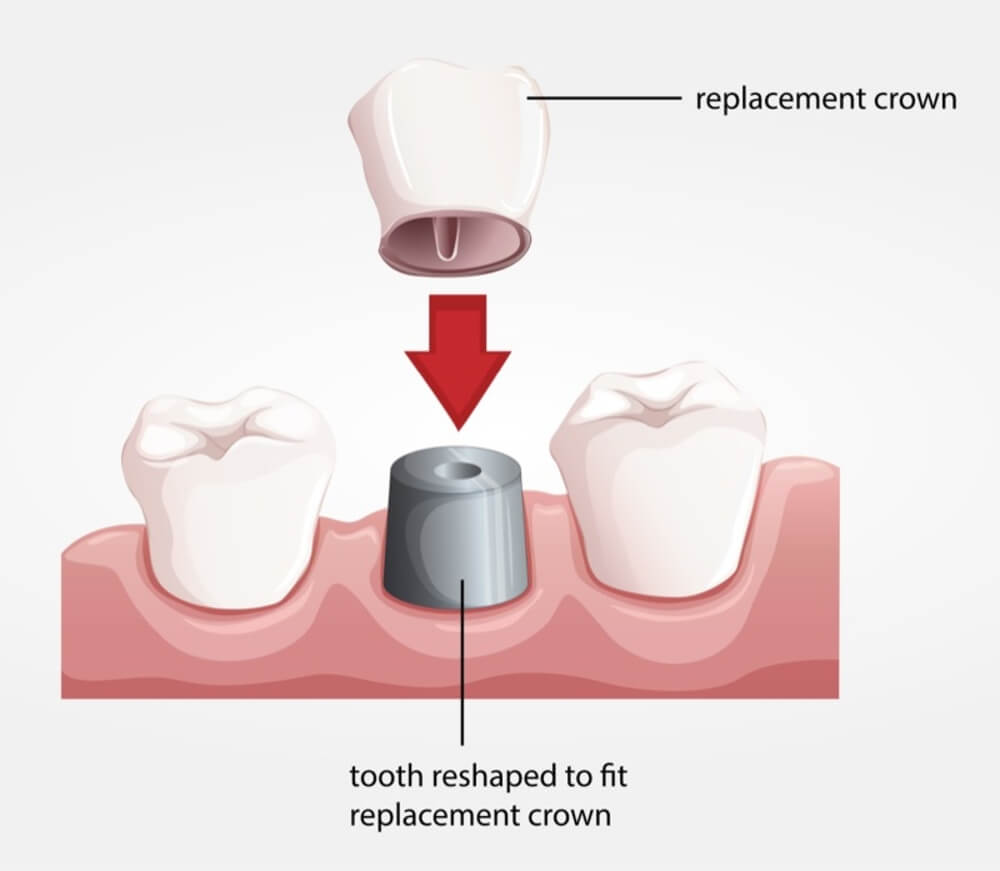Does Diabetes Cause Gum Disease?
Gum disease, also known as gingivitis, has been called the fifth complication of diabetes behind heart, nerve, kidney, and eye disease.

Does Diabetes Cause Gum Disease? Poorly controlled diabetes can lead to gum (periodontal) disease. This can happen at any age. Unfortunately, diabetes is a disease that has the potential to affect the entire body. With poorly controlled blood glucose levels, diabetics have a higher risk of many oral health problems. While controlling blood sugar helps to reduce the chances of dental problems, dental care is still very important for anyone suffering from Type 1 or Type 2 diabetes. If you are wondering “Does diabetes cause gum disease?” read on to learn the details.
Diabetes has the potential to increase the risk of many different oral health problems, including:
- Poor Healing – Individuals who do not control their diabetes may have a difficult time healing after dental procedures or oral surgery, since blood flow to the area may be impaired.
- Oral Thrush – Diabetics, particularly those who take antibiotics, have a high risk of oral thrush. This fungus feeds on high levels of sugar, which exist in the saliva of individuals with diabetes that is poorly controlled.
- Dry Mouth – A reduction in saliva flow may occur in individuals with diabetes, causing dry mouth. A dry mouth has the potential to result in oral infections, ulcers, soreness, or even tooth decay.
- Gum Disease – Diabetics are also more likely to deal with gum disease.

Blood Glucose Levels and Gum Disease
Gum disease is a very serious problem for diabetics. This gum infection has the potential to lead to tooth loss, which may make it difficult for diabetics to eat in the future. If gum disease isn’t treated, it has the potential to destroy the bone that supports the teeth. For diabetics who have high blood sugars or fluctuating blood sugars, the risk of gum disease is high.
Symptoms of Gum Disease
Some of the potential symptoms of gum disease include:
- Yellow or white pus around the white gums
- Swollen or red gums
- Bleeding gums
- Gums that pull away from teeth and teeth that appear longer
- Bad breath
- Changes in the way teeth fit together when you bite down
- Movement of teeth
Diabetes and Gum (Periodontal) Disease
Of course, it’s important to remember that gum disease is often painless in its early stages. Many people don’t realize they suffer from this problem until it’s already done serious damage. For this reason, diabetics need to find a dentist and schedule regular dental checkups.
If you’re a diabetic, ask yourself the following questions to figure out if you need to head to a family dental practice for a checkup.
- Question #1 – Do you have teeth that have shifted?
- Question #2 – Do you have loose teeth?
- Question #3 – Have you seen blood on your food or your toothbrush?
- Question #4 – Are you using tobacco products, such as cigarettes?
- Question #5 – Is your A1C over 7.0?
- Question #6 – Have you ever had a dentist tell you that you had gum disease?
- Question #7 – Has it been more than a year since you went to the dentist?
If you answered “yes” to one or more of these questions, you need to be examined by a dentist for gum disease.
Talking to Your Dentist About Diabetes and Oral Health
One of the best things diabetics can do to prevent oral health problems is to keep their blood sugar levels under control. Good oral hygiene is also important. Diabetics should also let their dentist know that they have diabetes. It’s recommended that diabetics have regular dental checkups every six months. Changes in medications or conditions should also be mentioned to the dentist at regular checkups.






